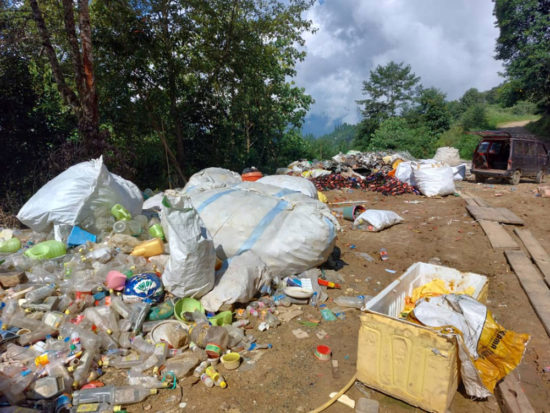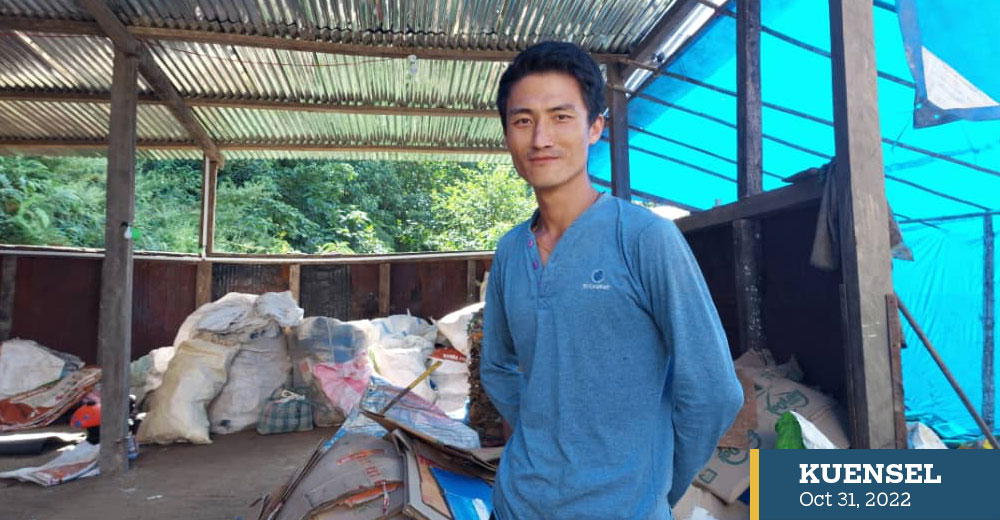Choki Wangmo | Tsirang
Like every other university graduate, after completing his studies in business management from India in 2017, Jambay Dorji, 30, was in Thimphu looking for a job.
For three months, Jambay lived in Thimphu searching for a job of his interest. He spent Nu 20,000.
His patience ran out by then. He returned to his home in Menchuna in Tsirang. It was during that period he started working on a business plan — a scrap business.
From a young age, Jambay knew that there was ‘cash in the trash’. During his school days, he made pocket money selling scraps to collectors.
Despite inspiring stories of youth in the waste business, Jambay and his wife Tandin Wangmo faced opposition in the earlier stage of business. There is still a taboo in waste business. The society considers it a “dirty business” for illiterate people, not meant for college graduates.
Using his college security deposit of Nu 12,000 and some support from his parents, he started the business.
After overcoming a difficult period during the pandemic, they now have a collection shed a few kilometres drive from Damphu Town. “The pandemic hit us hard. It drove us to bankruptcy. There were problems in transportation and market,” Jambay said.

Recently, they bought a waste compressor with the fund support of Nu 300,000 from the Department of Cottage and Small Industry.
Jambay employed five young people at the firm. They collect PET bottles, carton boxes, and plastic waste. People can collect and drop it at the firm for a fee of Nu 6 for a kg of carton boxes. “It engages people in waste management,” he said.
“Bhutanese still lack a sense of waste management. There is no shortage of waste,” he added.
Once a month, Jambay transports a trip of compressed waste across the border from Gelephu. A trip of DCM truck can carry 1,600kg of carton waste and 800kg of PET bottles. Tandin manages work at the collection centre. He earns more than Nu 100,000 a trip, out of which Nu 60,000 is spent on paying workers, transportation costs, and other utilities.
As there are increased instances of unmanaged waste in the gewogs, they need more helpers. The villagers do not know about such services too. For now, the firm has placed two agents in Tsirangtoed and Gosarling gewogs. “We need two people in each gewog.”
Before the pandemic, Jambay managed waste segregation at the disposal site in Mendrelgang. However, without returns on investment, they couldn’t continue the business. They are still awaiting directives from the dzongkhag administration to continue the business.
But, if it is carried out through a tender system, installing a conveyor belt at the site is doubtful.
“If we get to manage the landfill, there won’t be challenges in collection,” he said, adding that the firm can take away over 15,000 kg of waste from the site every week.
With increased population and waste generation, the landfill, which has a lifespan of 30 years is already 70 percent filled up. Opened in the early 2000s, the disposal site is 17km away from Damphu Town.
There are six scrap dealers in Damphu.


